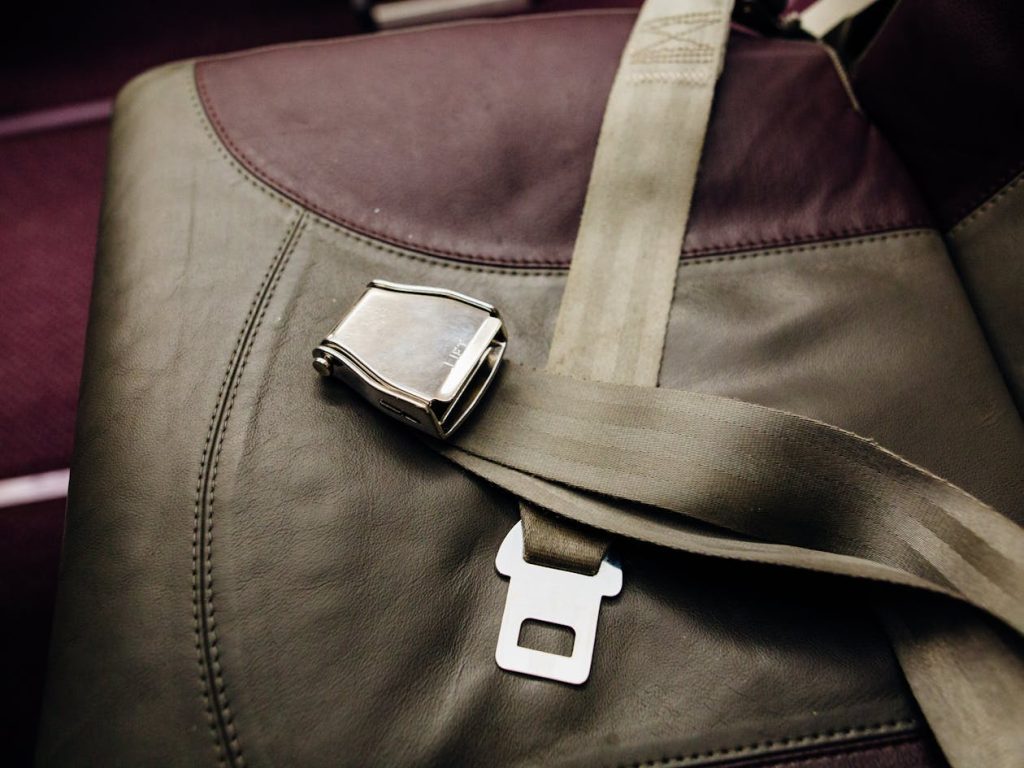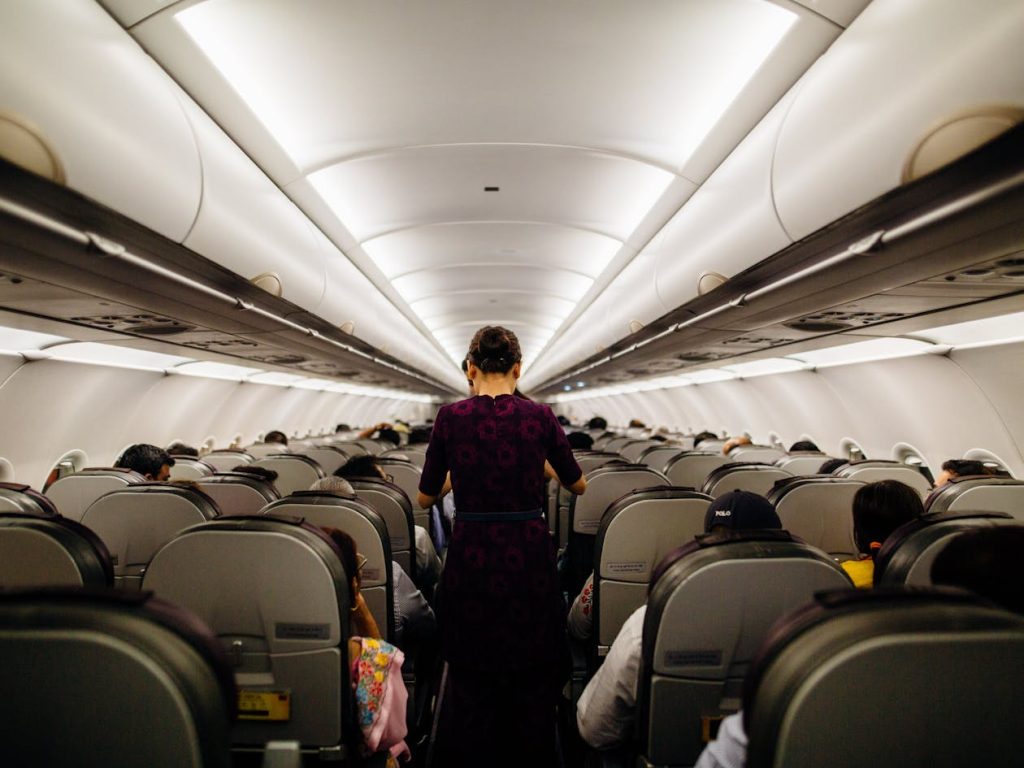Airline Faces Backlash Over Controversial New Rule for Plus-Size Passengers
Last updated on
January 27, 2026, marks more than just another date on Southwest Airlines’ calendar. It represents the final transformation of an airline that once prided itself on being different from every other carrier in the sky.
Behind closed doors at the Dallas-based airline’s headquarters, executives face mounting pressure from activist investors demanding higher profits and revenue streams. Their solution involves dismantling another customer-friendly policy that helped build Southwest’s loyal following over decades of operation.
This latest change targets passengers who need extra space, forcing them to purchase additional seats in advance rather than requesting accommodation at the airport. Social media erupted with reactions ranging from support to outrage as news of the policy spread.
What emerges is a picture of an airline abandoning its identity in pursuit of revenue goals that mirror every other major carrier in America.
Policy Change Breakdown
@thechoxolatebunny #southwestairlines #plussize #fat #trending #fypシ゚viral
♬ original sound – Alexis | Alexis Talks 💕
Southwest’s current system offers flexibility that disappears under the new rules. Passengers requiring extra space can currently request free seats at airport gates or purchase additional seats in advance with guaranteed refunds if flights aren’t full.
Starting January 27 next year, advance purchase becomes mandatory for anyone who doesn’t fit within standard armrest boundaries. Airport requests become expensive last-minute purchases. Guaranteed refunds disappear, replaced by conditional reimbursement that depends on flight capacity and booking class matching.
Passengers arriving without pre-purchased extra seats face two options: buy additional space at airport prices or accept rebooking to different flights when adjacent seats aren’t available. Refund requests must be submitted within 90 days, adding administrative complexity to what was once automatic.
“To ensure space, we are communicating to Customers who have previously used the extra seat policy that they should purchase it at booking,” Southwest announced, framing the change as passenger convenience rather than revenue protection.
Revenue Strategy Behind the Rule Shift
Southwest Airlines is changing its seating policy for larger customers
byu/rezwenn inbusiness
Activist investors have pressured Southwest to boost profitability through fee-based revenue generation that other airlines mastered years ago. The seating policy change ensures income from extra seat sales instead of giving away free space during less crowded flights.
This revenue strategy aligns with Southwest’s broader transformation. The airline abandoned free checked bags in May 2025, ending a decades-long policy that differentiated it from competitors. Assigned seating replaces open boarding starting the same day as the new accommodation rules.
Southwest plans to convert its seats to premium options with extra legroom, following standard practices among other major carriers. Each change moves the airline closer to industry norms while abandoning customer-friendly policies that built its reputation.
Financial pressure from shareholders outweighs customer loyalty considerations as Southwest pursues revenue streams that competitors have relied on for years.
Travel Expert Warns of Broader Impact

Jason Vaughn operates Fat Travel Tested, a platform providing travel advice for plus-size passengers. His professional assessment contradicts Southwest’s positioning of the change as customer service improvement.
“I think it’s going to make the flying experience worse for everybody,” Vaughn warned, arguing that current policies benefit all passengers by ensuring adequate space distribution.
Vaughn described the change as another disappointment for Southwest loyalists who valued the airline’s distinctive approach to customer service. He compared passenger reaction to recent corporate rebranding controversies that alienated loyal customers.
“They have no idea anymore who their customer is,” he said of Southwest. “They have no identity left.”
His assessment reflects broader concerns about Southwest’s strategic direction as it abandons policies that created competitive advantages and customer loyalty over decades of operation.
Airline Industry Context: Race to the Bottom
Comment
byu/rezwenn from discussion
inbusiness
Southwest’s transformation reflects industry-wide pressure to maximize revenue through fee-based pricing structures. Budget carriers historically differentiated themselves through included services that major airlines charged extra for separately.
Free checked bags disappeared from Southwest’s offerings in May, breaking a policy that attracted customers willing to pay slightly higher base fares for included services. Open seating abandonment removes another unique selling point that distinguished Southwest from its competitors.
Industry analysts note that airlines face constant pressure to match competitors’ revenue strategies rather than maintain distinctive service approaches. Shareholders prefer predictable fee income over customer loyalty benefits that are harder to quantify financially.
Southwest’s changes mirror broader trends where airlines reduce included services while charging separately for amenities that were once standard across the industry.
Implementation Details Create New Complications

The new system creates practical challenges for passengers who must predict their space needs at booking time rather than addressing requirements at the airport. Last-minute seat purchases become more expensive than planning allowed under previous policies.
Rebooking requirements could disrupt travel plans when adjacent seats aren’t available on fully booked flights. Business travelers and vacation planners face increased uncertainty about whether their original flight reservations will be honored.
The 90-day refund request window adds administrative complexity for passengers who previously received automatic reimbursements. Customer service representatives must process more complex refund calculations based on flight capacity and booking class criteria.
Airport staff require training for new purchasing requirements and rebooking procedures. Gate agents face increased customer service challenges when accommodation requests can’t be fulfilled through free seating adjustments.
Customer Loyalty Program Implications
Southwest built its customer base through policies that prioritized passenger convenience over short-term revenue maximization. Frequent flyers valued predictable service standards and accommodation flexibility that distinguished Southwest from other carriers.
Travel agents report increased client complaints about Southwest’s policy changes as longtime customers reconsider their airline preferences. Customer retention becomes challenging when competitive advantages disappear and service levels match industry standards.
Loyalty programs that once differentiated Southwest through unique benefits now offer similar rewards to competing airlines. Customer acquisition costs increase when distinctive service policies no longer attract passengers willing to pay premium prices for superior treatment.
Business travelers and vacation planners may shift to competitors offering better accommodation policies or more transparent pricing structures for additional services.
Accessibility and Discrimination Concerns

The policy change raises questions about transportation access for passengers whose size results from medical conditions rather than lifestyle choices. Disability rights advocates may challenge requirements that impose financial penalties on passengers with certain physical characteristics.
Airlines must balance accommodation requirements with operational efficiency and revenue goals. Legal precedents around transportation access remain unclear as carriers implement policies affecting passengers with various physical needs.
Medical conditions affecting body size create complicated scenarios where passengers face higher travel costs through no fault of their own. Policy implementation could disproportionately impact specific passenger groups in ways that raise discrimination concerns.
Consumer protection advocates monitor airline policies for compliance with accessibility requirements, while airlines argue that space limitations require fair allocation methods.
Financial Impact on Affected Travelers

Advance purchase requirements eliminate free accommodation options that helped some passengers manage travel budgets more effectively. Airport purchases likely cost more than booking rates, creating financial pressure for travelers who miscalculate their space needs.
Rebooking fees and schedule changes add indirect costs when original flights can’t accommodate passenger requirements. Travel budgets must account for mandatory additional expenses that were previously handled through free seat assignments.
Business travelers face increased expense reports when extra seats become required rather than optional purchases. Vacation planners must allocate more money toward transportation costs that were once absorbed by airline customer service policies.
Family travel becomes more expensive when multiple passengers require accommodation that now demands separate seat purchases rather than gate agent assistance.
Southwest’s Identity Crisis

Southwest continues abandoning its unique market positioning in favor of conventional industry practices that mirror competitor policies. Customer loyalty built on distinctive service approaches faces erosion as advantages disappear through policy changes.
Activist investor pressure drives strategic decisions toward standard airline models that prioritize short-term revenue over long-term customer relationships. Southwest’s transformation reflects broader questions about whether airlines can maintain service differentiation while meeting shareholder demands.
Future competitive advantages become unclear as Southwest adopts practices that customers can find at any major carrier. Brand identity shifts from customer-focused budget airline to conventional carrier with standard fee structures and service limitations.
The company’s evolution from maverick industry disruptor to typical airline operator illustrates how financial pressure can override customer service principles that once defined corporate culture and competitive strategy.
As Southwest implements these changes, industry observers wonder whether any airlines will maintain customer-focused policies or if revenue maximization will ultimately homogenize service standards across all carriers, leaving passengers with fewer choices and higher costs for basic accommodation needs.
Some of the links I post on this site are affiliate links. If you go through them to make a purchase, I will earn a small commission (at no additional cost to you). However, note that I’m recommending these products because of their quality and that I have good experience using them, not because of the commission to be made.































 JOIN OVER
JOIN OVER
Comments